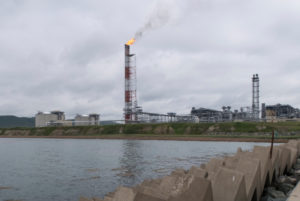MANILA, Philippines — Food ingredient and plastic manufacturer D&L Industries Inc. of the Lao family saw slightly better earnings in the first quarter of the year as losses in its Batangas manufacturing plant dwindled.
D&L on Wednesday said profit in the January to March period reached P618 million, a 4-percent increase year-on-year.
A recovery in exports also lifted revenues by 39 percent to P8.8 billion.
D&L president and CEO Alvin Lao told reporters they expected their P10-billion Batangas plant to break even by the second half of the year to help further improve earnings.
“We were expecting [breakeven] to take two years because we spent a big amount on the plant,” Lao said.
READ: D&L opens P10-B manufacturing plant in Batangas
The company opened the Batangas plant in July last year in the hope of boosting its export business by catering to more global clients in need of coconut-based products for food and oleochemicals.
In a stock exchange filing, D&L said losses from the Batangas plant had narrowed to P16 million from P315 million, which was recorded in the third quarter of last year when it started commercial operations.
Strong demand for higher-margin products
Natura Aeropack Corp. and D&L Premium Foods Corp., the wholly owned subsidiaries that operate the Batangas facility, have likewise surpassed their export commitment with the Philippine Economic Zone Authority by 230 percent as new clients came in.
Greater demand for higher-margin products also helped lift earnings, with margins surpassing prepandemic levels, according to Lao.
READ: D&L Industries sees profits growing by at least 10% in 2024
While upside risks remained due to Israel’s attacks on Gaza that could potentially affect the prices of raw materials, Lao clarified they were “not really worried” this year.
This optimism was driven by the possibility of lower interest rates that could ease the costs of repaying D&L’s P15.5-billion debt.
The Bangko Sentral ng Pilipinas is projected to cut rates by the latter part of the year.
“It seems that our interest expense level has peaked, so moving forward, as interest rates start to come down and as we slowly pay our debt, that means consequently more income for us,” he said.


